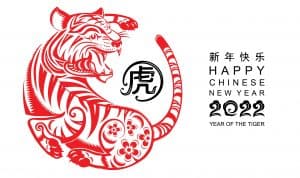
THE YEAR OF THE TIGER! IT’S TIME TO ROAR!
Once a year, loving human beings just like you and me begin to reflect on what we’ve done, what we want, and where we’d like to venture. We take stock of our challenges and accomplishments, and we reassess how our goals serve us. Whether it has to do with our physical, mental, or spiritual health, we are likely to begin this reflection process in the weeks prior to the New Year.
Whether we call it New Year’s Day, Chinese New Year, Rosh Hashanah, or What Happened To My Dreams Day – or something else entirely: WE ARE HUNGRY FOR A CHANGE!
In the days surrounding January 1st (and anytime of year), we have a wonderful opportunity to transform and realign ourselves.
If you love rituals, check out my Free Resources pages. You’ll find ancient ceremonies, lovely prayers, and encouragement that you might find helpful during times of change and transition. You might also consider using my Personality Cards – they’re wonderful for all sorts of rituals.
Let’s Dive In!
You might be wondering, “How did astrology-based New Years’ celebrations get started in the first place?” Since civilization began, the best answer is that humanity has looked to the stars for guidance.
During this time of year, we look beyond ourselves and we reach to the Cosmos, asking questions about our existence and purpose. For eons, ancient astronomers, shamans, and seers have used the movements of the sun, moon, and constellations to find stability and meaning in time and space.
While many of the most colorful cultures throughout the world long-ago formed unique traditions for their New Years’ celebrations, the Chinese New Year is one of the most specific, complex, and fascinating. Whether you plan on celebrating for fun or for a deep transformation, or you’re just interested in learning more, look no further!
What is the Origin of the Chinese New Year?
The earliest recorded New Years’ celebrations occurred in Babylon over 4000 years ago. These celebrations were marked by the first new moon after the vernal Equinox, as Babylonians celebrated their religious festival called Akitu. Akitu celebrations were closely tied to harvesting barley in the Spring, where devotees would worship various Gods and entities – and crown a new King.
Similarly ancient is the origin of the Chinese New Year. As early as the 14th century BC, the Shang Dynasty began celebrating this holiday with a focus on religious and political significance. Unlike our Western understanding of New Years Day, which is always January 1st, the Chinese New Year has always been changeable according to the empire’s lunar cycle and political power changes.
While the Babylonians chose their New Year’s celebration schedule according to the moon, the Chinese celebrated the second new moon after the winter solstice. In other words, Chinese New Year always falls between January and February, instead of March or later. The Chinese also track the year differently than other cultures, in that they allow solstices, equinoxes, and religious influences to affect their calendar.
The Chinese begin New Year’s celebrations at the start of that second new moon and continue celebrating for about 15 days, until the Festival of Lanterns, marked by the next full moon. This 15 day period is full of traditions that illuminate the darkness, inviting hope and good fortune. If you were to celebrate Chinese New Year, you might light lanterns and candles and set fireworks aglow.
Why is The Chinese New Year So Late in 2022?
In 2022, the Chinese New Year will occur on February 1st. The date for the Chinese New Year shifts every year according to the lunar calendar. February 1st of 2022 will be the day we experience the second new moon after the winter solstice. If you want to follow the tradition down to the letter of Beijing “law,” you might also make yourself some delicious dumplings.
What many don’t realize is that China is predominantly Buddhist. While the government of China rightfully rejects the over-organization of religions, it allows temples and worship within reason. This modest policy allows people to choose their practices but prevents religious propaganda from infecting the hearts and minds of the population. With such a large population, any massive movement can affect the economic balance, psychological profile, and the sense of oneness and community within the country.
As each festival ensues, many families will include Buddhist prayers in their daily rituals and they’ll venture out to their favorite temple to honor the Divine Beings who nourished them throughout the year. This is when devotees will pray for their ancestors and living family members, and invite divine grace for the days ahead.
Why Do The Chinese Celebrate The Lunar Year?
The Chinese traditions for the modern Lunar Year are mainly religious and social in nature. During the preparation for the festival and throughout, the Chinese will perform a variety of rituals to appease the various aspects within their cultural and Buddhist traditions.
For example, those preparing for the Chinese New Year will clean their houses as a way to serve and honor God, cleansing their environments of any negative energy from the past year. They might also sacrifice paper goods and food to their ancestors, while families use firecrackers to dispel any evil spirits.
The Chinese New Year also centers around ensuring good luck for the coming year. Elders sometimes give out money to children, and many will post scrolls with good luck messages. People might also keep their doors unlocked or open to allow good luck to enter their homes.
The New Year celebrations are also meant to ensure longevity for families, so much of the tradition centers around feasting. Long noodles symbolize long life, and the last course, meant to be left uneaten, symbolizes abundance. Extended families gather around dumplings which stand for perfection and the family unit.
The Chinese treat their chronological calendar as part of their zodiac, which uses animals to symbolize personalities and destinies throughout the years. These signs are also used to mark the sun’s path as it visually moves around the Earth. Each New Year, the Chinese celebrate the end of one animal year and the beginning of a new animal year. Each animal symbolizes specific characteristics for that year.
What Are The Chinese New Year Symbols?
There are 12 Chinese Zodiac symbols which rotate in a chronological cycle. Each year, a new animal is assigned to that year, marking the year’s characteristics and the people born during that year. According to this tradition and the Zodiac Calendar, 2022 Is The Year Of The Tiger.
The 12 Chinese Zodiac symbols are:
-
-
- Rat
- Ox
- Tiger – YAY!
- Rabbit
- Dragon
- Snake
- Horse
- Sheep
- Monkey
- Rooster
- Dog
- Pig
-
The next animal is always assigned in the same order as each year passes. In other words, 2022 is the third year into the newest cycle of the Zodiac calendar.
Meaning Of The Year Of The Tiger
The Tiger in the Chinese Zodiac is a symbol of confidence and strength. Those who have birthdays in the Year Of The Tiger are meant to be enthusiastic and confident leaders. At the same time, these people are also sensitive to others’ needs, generous, and committed to selflessly serving others.
These traits are helpful for those who must lead in business, politics, or religion, because those marked by the Tiger are bold yet compassionate. These Tigers have the necessary emotional intelligence to guide others, while also being ultra-sensitive to the intricacies of life.
This year is marked by the Tiger, but the Tiger comes around every 12 years. That means that anyone born in 2010, 1998, 1986, 1974, 1962, 1950, and so forth are also marked by the characteristics of the Tiger.
What Should I Do If I’m Born In The Year Of The Tiger?
Born as a Tiger, you’ll have lucky and unlucky colors, numbers, flowers, and directions. You’ll also have opposite and compatible signs!
If you’re a Tiger, your lucky numbers of 1, 3, and 4. Your unlucky numbers are 6, 7, and 8, and your unlucky color is brown.
Your lucky colors are blue, gray, and orange, and you’re in good hands if you’re facing East, North, or South. You’ll want to avoid facing Southwest, which is your unlucky direction!
You also have lucky days and months! Try to plan good things on the 16th and 27th of any month, especially during each lunar year’s 3rd, 7th, and 10th months. Try to avoid planning things for any Chinese year’s 1st, 4th, 5th, and 11th lunar month, as those are your unlucky months.
If you’re looking for love, you’ll want to avoid the Monkey signs at all costs since they are your opposite. Though, for some reason, Tigers and Monkey folk might have very intense and consuming sexual exchanges.
Tigers might also have bad luck with anyone who is an Ox, Snake, or Goat. If you’re a Tiger and hoping for the best life possible, you might consider aiming for relationships with people who fall under the Horse, Dog, or Pig signs.
Some predictions say that 2022 is a great year for Tiger signs to get married or find a relationship, but those 24 or 36 years old should pay close attention to their love lives, as their luck in love might waver during this year.
For Tigers, having good luck in financial areas might be tricky, but don’t worry, a huge promotion might be on the way as 2022 is a year of personal advancement.
REMEMBER!
In all things astrological, please realize that these aspects are only suggestions to help ease some stress. You are far more powerful than you realize. The blueprints that astrology suggest are not hard and fast rules. It might also be that you have other influences in your life that might greatly enhance your ability to receive what you desire.
To improve your vibration, luck, and happiness, spend time chanting Sanskrit mantras and love-filled sutras. Pray for others and the Universe prays for you.
YOU ARE LOVE!
You are a beautiful Living Being filled with light and love, born from stardust. You are unlimited potential in every direction. With a focus on discipline, virtue, and your own goodness, you can become as expanded and liberated as you desire.




